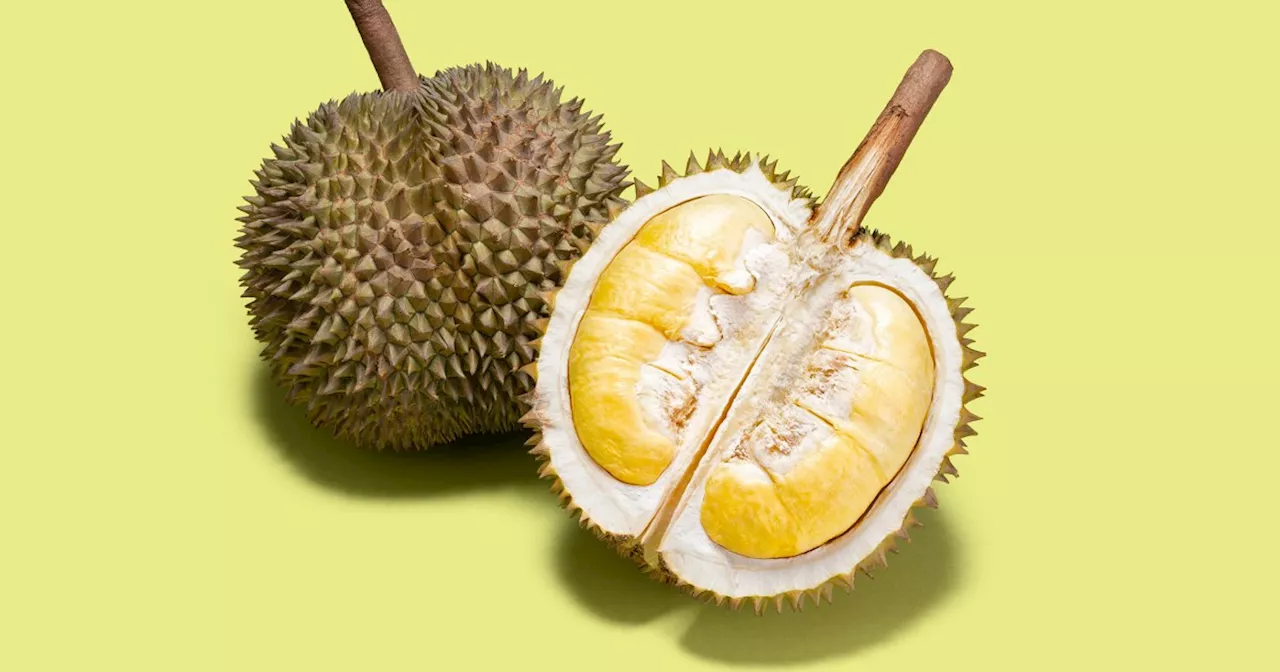While most fruits are low in fat, a few varieties stand out for their surprisingly high fat content. These fruits not only provide essential nutrients but also offer unique health benefits. According to registered dietitian Patricia Bannan, fruits typically contain little to no fat, making them a healthy choice for most diets. However, some fruits, rich in healthy fats, can enhance your nutritional intake and provide satisfying texture and flavor.
Fruits such as avocados and olives, which are often overlooked, demonstrate that not all fruits are low in fat. In fact, certain fruits contain several grams of fat per serving, contributing to their energy density and nutritional profile. Here are nine fruits known for their higher fat content, along with their health benefits.
High-Fat Fruits That Nourish and Satisfy
1. Durian
A unique tropical fruit, durian packs around 13 grams of fat per cup. Native to Southeast Asia, this spiky fruit has a creamy texture and a distinct sweet-bitter taste. It is also rich in flavonoids, beneficial plant compounds that can support overall health. However, its strong odor has led to comparisons to “athletes’ sweaty socks,” making it a polarizing choice among fruit lovers.
2. Avocado
Avocados are renowned for their creamy texture and heart-healthy benefits. Containing approximately 7 grams of fat per third of an avocado, they are rich in monounsaturated fats similar to those found in olive oil. These fats not only contribute to satiety but also aid in the absorption of fat-soluble vitamins such as A, D, E, and K. Research indicates that individuals who consume avocados may maintain a healthier weight compared to those who do not include them in their diet.
3. Olives
Typically used in savory dishes, olives contain about 6 grams of fat per ten green olives. Classified as stone fruits, they share their family with cherries and peaches. Similar to avocados, olives are high in monounsaturated fats, which are beneficial for cardiovascular health. They are low in carbohydrates and sugar, making them a nutritious snack option.
4. Coconut
Coconut is a tropical fruit that can be enjoyed in various forms, including dried shredded meat, which contains around 4 grams of fat per ounce. Composed primarily of saturated fat in the form of medium-chain triglycerides (MCTs), coconut is high in calories and fiber. While small amounts can be beneficial, moderation is essential, especially with coconut oil and cream.
5. Açaí Berries
Açaí berries are often touted as a superfood, providing around 5 grams of fat per packet of açaí berry puree. These berries contain healthy monounsaturated and polyunsaturated fats, similar to those in olive oil and nuts. While açaí bowls can be delicious, they may also be high in added sugars, so opting for unsweetened varieties is advisable.
Moderate-Fat Fruits Worth Considering
6. Sapodilla
This tropical fruit features a sweet taste reminiscent of brown sugar, with approximately 2.7 grams of fat per cup. Rich in vitamins A, B, C, and minerals such as calcium and potassium, sapodilla offers a nutritious addition to any diet.
7. Carissa
Commonly known as natal plum, carissa delivers about 2 grams of fat per cup. Its bright red color and tart flavor make it a delightful choice for jams and desserts.
8. Passion Fruit
With about 1.7 grams of fat per cup, passion fruit is not only flavorful but also provides a significant amount of protein compared to other fruits. Its sweet-tart pulp can be enjoyed raw, as a yogurt topping, or blended into drinks.
9. Pomegranate
Famous for its antioxidant properties, pomegranate contains approximately 1 gram of fat per half-cup of arils. It is a rich source of vitamin C, vitamin K, and beneficial plant compounds, making it a highly nutritious fruit choice.
In conclusion, while most fruits are low in fat, these nine options offer a unique blend of healthy fats, vitamins, and minerals. Incorporating these fruits into your diet can provide not only satisfaction but also a range of health benefits. As Natalie Rizzo, nutrition editor for TODAY, advises, moderation is key. By enjoying these fruits in mindful portions, you can enhance your diet without unnecessary restrictions.





































































